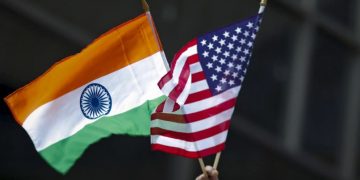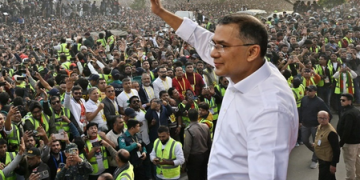What has been unofficial for years is now official. Saudi Arabia’s landmark mutual defence pact with Pakistan signed on 17 September could come with double benefits for Pakistan. It will greatly strengthen Islamabad and help it play a major role in the geopolitical strategies planned by every other country in the Middle East, especially in the backdrop of recent tensions. India’s military action under Operation Sindoor might have acted as a trigger for Pakistan while Israel’s attack at Doha in Qatar on Hamas leaders might have acted similarly on the Saudis.
The Strategic Mutual Defence Agreement, signed in Riyadh during Pakistan Prime Minister Shehbaz Sharif’s recent visit, cements ties between the two countries in such a manner that both countries will treat an attack on one as an attack on both.
Reports also indicate the pact extends to Pakistan’s nuclear capabilities, allowing them to be considered part of Saudi Arabia’s arsenal in case of an emergency. This implies that out of the 56 or so Islamic nations across the world, all those who sign this kind of a defence agreement with Pakistan will also benefit from a nuclear deterrent in this indirect manner. Pakistan has emerged stronger with the pact seemingly instilling new confidence in the country’s military establishment. It gets new partners, while its principal ally remains China, which provides it with military support in addition to intelligence inputs. This further implies that those Islamic nations that ink a pact with Pakistan will get Chinese defence technology and intelligence as a bonus package.
Also Read: Cost of Ineptness
The new pact comes at an opportune moment for Pakistan as its relations have improved much with the US since President Donald Trump assumed charge for the second time. It is no secret that Saudi Arabia has been supporting Pakistan’s nuclear programme for many years by providing the much-needed funds. It was understood that Saudi Arabia would use Pakistan’s nuclear capabilities should the need arise. The new pact formalises that understanding. The fact that they are now openly declaring a collective security pact is a very significant financial achievement for a cash-strapped nation like Pakistan. The deal marks a shift in Riyadh’s security calculus. It appears Saudi Arabia is now trying to expand its alliances so that it has to depend less exclusively on the US for security purposes.
Israel’s recent attack on Qatar, a US ally, seems to have jolted Saudi Arabia’s confidence in relying on US support. It must have alarmed Riyadh that the US did not make any noise, not to speak of censuring Israel, for invading Qatar’s airspace to launch a missile attack. This has apparently cast doubts about US security guarantees to the Gulf monarchies.
With Israel’s war in Gaza, Iran-backed Houthis flexing their military muscle, and America adopting an ambivalent attitude to friendly Arab countries when it comes to supporting the Israeli offensive, Saudi Arabia seems to find in Pakistan its best bait as a security provider.
With this sudden development, India finds itself in an unenviable position, especially as it has been bragging about its successful Middle East policies with top leaders, including Prime Minister Narendra Modi, making frequent visits to the Arab countries in recent times.
For Pakistan, the pact offers strategic deterrence against India in future military confrontation, especially in response to cross-border terrorism. India, in its recent campaign post-Pahalgam massacre, has made a virtue of its “surgical strikes” at terrorist networks inside Pakistan and declared it would repeat such strikes whenever there are non-state actors organising terror attacks in India. As per the stipulations of the pact, Saudi Arabia will construe any Indian forays into Pakistani territories as an attack on itself as well. The Indian foreign affairs establishment is studying the implications of the pact, both its strategic and economic aspects. India is the second largest trade partner of Saudi Arabia, whereas Saudi Arabia is the fifth largest trading partner of India. Also, Saudi Arabia is the third-largest crude oil supplier to India. The question is whether Saudi Arabia will give more importance to its economic ties with India than its defence commitment to Pakistan under the pact should such a choice become inevitable.
In a sense, Saudi Arabia will have to make a balance between Pakistan providing it comfort in the defence area and India giving economic benefits including a very substantial community working in the country. There is also the question of whether the Saudi-Pak defence pact would impact India’s relationship with other Moslem countries in the Arab world such as Oman, UAE and Qatar. It could be that these countries may not look at India with a communal lens or from the perspective of the India-Pakistan conflict.
The Mumbai terror attack in 2008 launched by operatives from Pakistan was condemned by many of the Arab countries. India can only hope that religion or solidarity of the Arab world with Pakistan based on their common Islamic faith would not influence its relations with India.






































